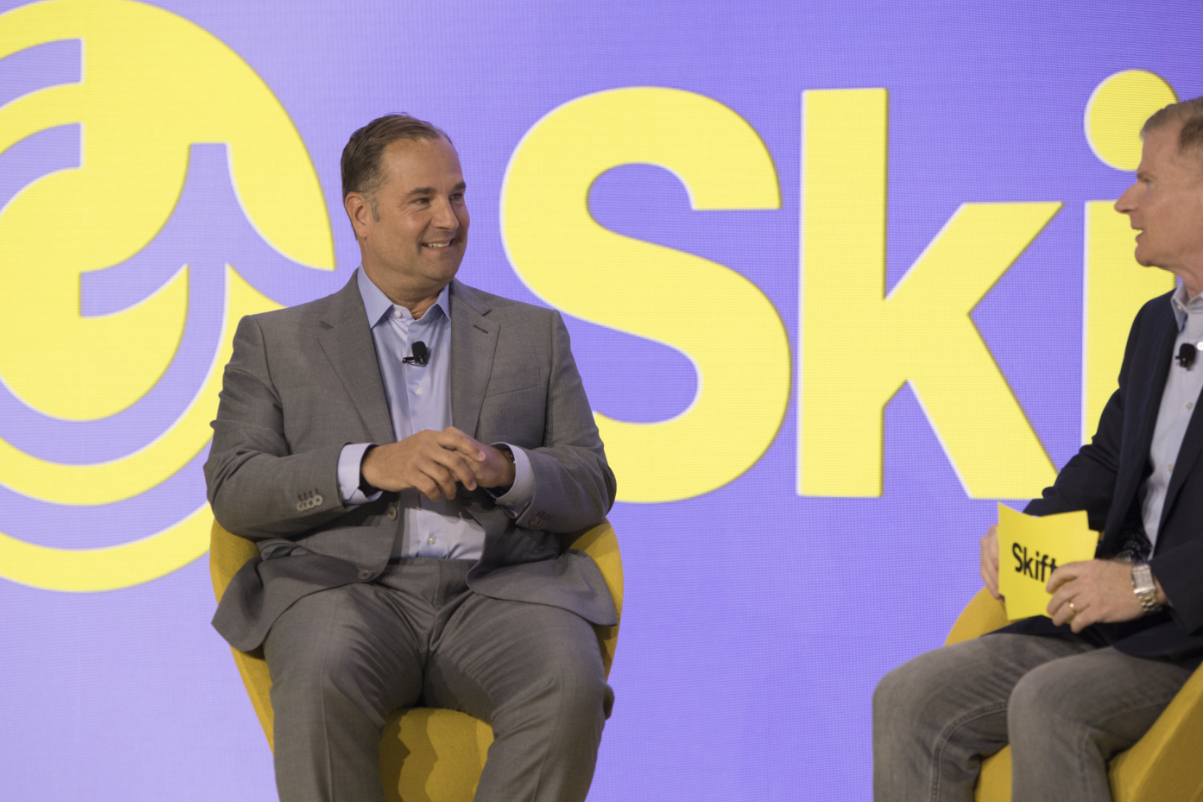Facebook Wants to Get a Little More Like Google in Identifying Traveler Intent

Skift Take
It's no secret that a huge swath of the travel industry would like to see Facebook advertising, including its Dynamic Ads for Travel, improve so there would be a hedge against Google's power in digital marketing. But big spenders such as the Priceline Group and Expedia have yet to commit to Facebook in such a big way.
These major online travel agencies work closely with Facebook, but have said in the past that Facebook isn't answering their needs in the way that Google does when it comes to travel advertising.
Facebook chief marketing officer Gary Briggs on Tuesday conceded that Google's advertising funnel — not just for travel — is a little narrower than Facebook's. What he meant was that Google can often identify consumer buying intent more easily than Facebook can because Google is closer to the buying decision in e-commerce.
In general, consumers at the wider top of the so-called marketing funnel are considered farther away from a purchase decision than those at the narrower bottom of the funnel.
There are sophisticated digital marketers, though, that are more effective than others in reaching consumers on Facebook in the wider portion of the marketing funnel, Briggs told attendees at the Wells Fargo Tech Summit 2017 in Park City, Utah.
He cited Priceline, presumably meaning the Priceline Group, including its Priceline.com and Booking.com units, that are among the companies doing "a really good job" engaging with consumers' conversations on Facebook.
In a brief exchange with Skift after his luncheon keynote, Briggs said Facebook wants to get better at "the long tail," or identifying consumers who aren't ready to purchase travel, but who may potentially do so.
Briggs said Facebook wants to improve its advertising to address consumers who may be looking at a query such as flights from Copenhagen to New York.
The company plans on making investments in this area because there would be a commercial benefit for Facebook and its travel advertising partners, as well as a benefit for consumers, he said.
Airbnb Versus Uber
Asked during his luncheon keynote what inspired him outside of the Facebook platform, Briggs said Airbnb falls into that category.
"Airbnb's brand positioning is quite well done," Briggs said, saying that the homesharing site is a "world-class customer" of Facebook's. Briggs said Airbnb and Uber both have been disruptive to local economies, but Airbnb is considered more well-regarded.





